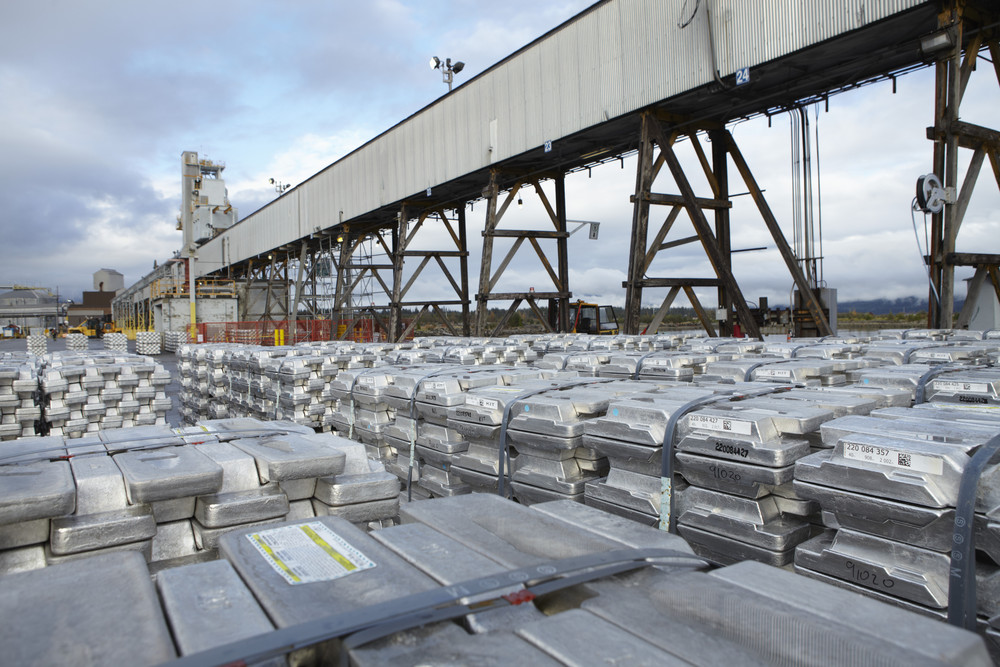Canadian groups advocating for mining and smelter operations speak out on U.S. tariffs


The organizational strength of Canada’s mining and smelting sectors are coming to bear on the new White House administration’s 25% tariff on imported Canadian goods.
One national group representing the entire mining sector and one representing aluminium producers responsible for Canada’s smelters have issued strong words about the tariffs, highlighting their potential impact on the Canadian economy, given the critical role of minerals and metals in other industries.
Pierre Gratton, CEO of The Mining Association of Canada, commented recently: "Canada has long been a dependable partner, providing certainty to U.S. manufacturing and defense industries by serving as a major supplier of minerals and metals. In 2022, 52% of Canada's mineral exports—valued at over $80 billion—were destined for the U.S. The imposition of tariffs on Canadian minerals and metals products runs counter to American national security and economic interests. These tariffs will disrupt the essential flow of mineral and metal resources, exacerbate vulnerabilities in critical mineral supply chains that both nations have been working to address and raise the costs of doing business for our U.S. customers.”
Gratton added, “The partnership on critical minerals between Canada and the U.S. began in earnest with the development of the joint action plan on critical minerals collaboration in 2020 under President Trump. In lieu of tariffs, Canada and the U.S. should be focusing on how to deepen this collaboration. The minerals and metals industry in Canada stands ready to strengthen our relationship with the United States, ensuring the free flow of these essential resources that drive economic growth, defense capabilities, and technological advancement on both sides of the border.”
The head of the mining association reminded the parties involved that members of the Mining Association of Canada produce products from minerals and metals that are traded throughout the global market. He added that his organization advocates for 694,000 Canadians employed in the sector directly and indirectly across the country.
The tariffs could also impact Canada’s Indigenous communities. Gratton mentioned that the mining sector also represents the largest private sector employer of Indigenous people and is a major customer of Indigenous-owned businesses in Canada.
The Mining Association stated, “U.S. tariffs will lead Canada's mining sector to pursue new and deepen existing alternative markets, as well as alternative sources of inputs necessary for the continued operation of mining facilities. This will hurt U.S. businesses.”
The Association also urged governments throughout Canada to use this moment to address long-standing barriers to Canadian economic growth, including the removal of internal trade barriers, complex, expensive and lengthy regulatory processes and uncompetitive tax policies. It called on all governments to double down to create the conditions for improved competitiveness, investment, productivity and prosperity.
Representatives of Canada’s major aluminium producers also weighed in. The Aluminium Association of Canada represents the three major Canadian aluminium producers: Alcoa, Alouette, and Rio Tinto. These companies collectively operate nine smelters in Canada, eight of which are in Quebec and employ over 9,500 workers.
Jean Simard, CEO of the Aluminium Association of Canada, stated, in reaction to the tariffs. "We are disappointed, but we were expecting this and are ready for it. This situation will unfortunately impact workers and consumers in America with the immediate increase on the price of aluminium."
Simard clarified the interconnectedness of the aluminium manufacturing supply chain will end up adversely impacting American manufacturing. If Canadian aluminium workers are impacted, it will affect the metal they produce, which is then processed, transformed, and fabricated into parts, components, and other products used by U.S. manufacturers.
He reminded the U.S. administration that 500,000 well-paying American manufacturing workers generating more than $200 billion in value are dependent on Canadian aluminium.
Simard said Canadian aluminium must remain exempt of any tariffs, because of its strategic role within North America's integrated industrial value chain. While the US produces, at best, one million metric tons a year of primary metal, he said it consumes six times that amount. He argued that imposing tariffs will only raise costs for US consumers and businesses in the middle of inflation reduction efforts.
In offering other remedies moving forward, Simard commented, “As we have done in the past, industry and governments will work hand-in-hand to maintain our domestic aluminium industrial ecosystem, a 100-year-old plus legacy, contributing to North America's defense and economic security. We will continue working alongside our governments, our ambassador and our Canadian industrial business and union colleagues, maintaining a united front. We will also actively reach out to our stakeholders in the US – customers, entrepreneurs, businesses, workers, elected officials – whose daily livelihood thrives on the use of our metal.”
The aluminium association added that the industries and governments in both governments should instead address the “devastating impacts of unfair Chinese trading practices” that it said stems from massive government subsidies in the country’s entire aluminum sector.
Simard said: “These non-market policies and practices of the last two decades have hurt our workers and businesses, shuttered smelters, and made it harder for our responsibly produced metal to compete. Canada will not be a transshipment risk or a vector for trade practices that could harm our collective economic security.”
Instead of a tariff on Canadian aluminium, the aluminium association argued that Canada should work very closely with the U.S. administration and industry to align trade policies and tools to better protect “fortress North America,” which includes a recently implemented 25 % surtax on imported Chinese aluminium products.
More information is posted on www.Mining.ca and www.Aluminium.ca.
Comments